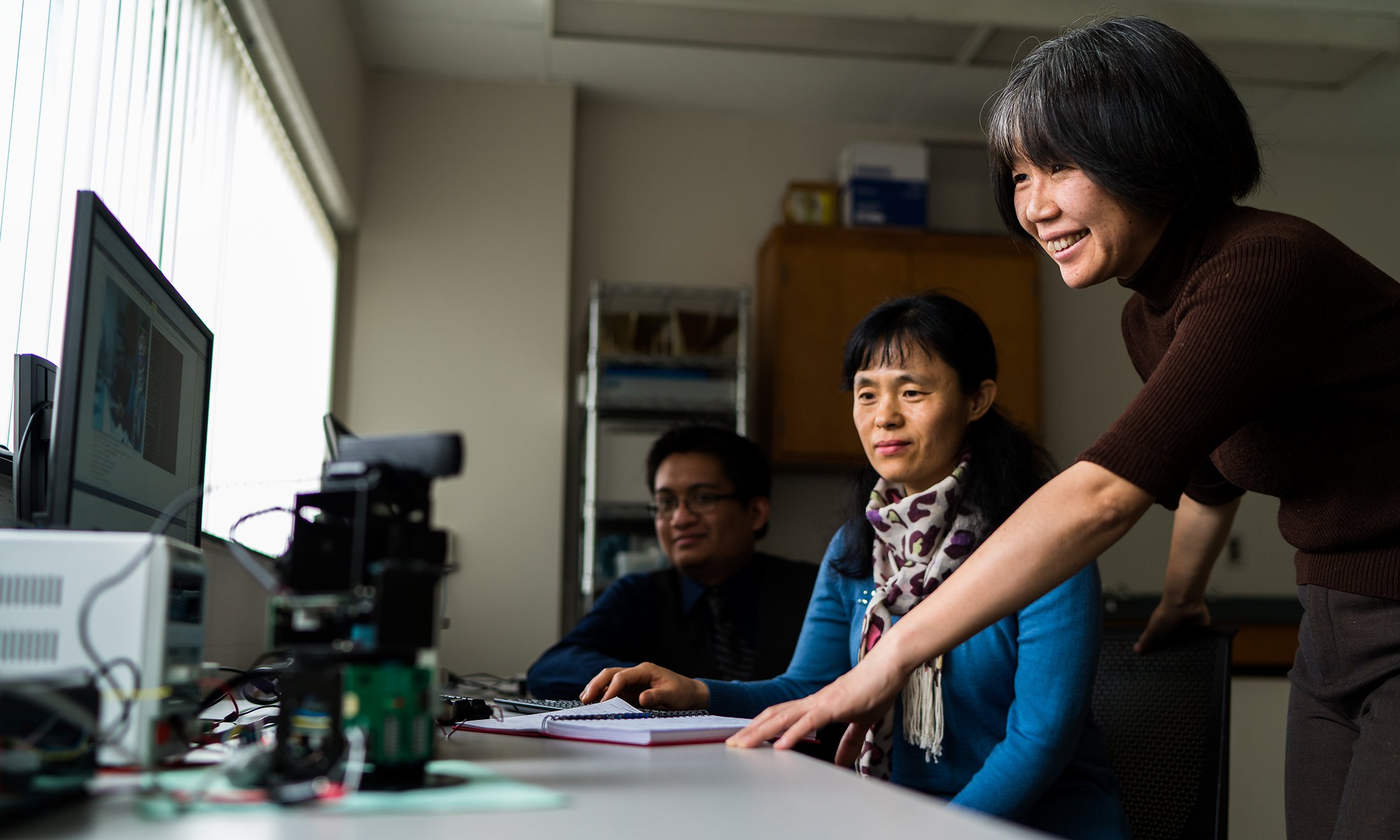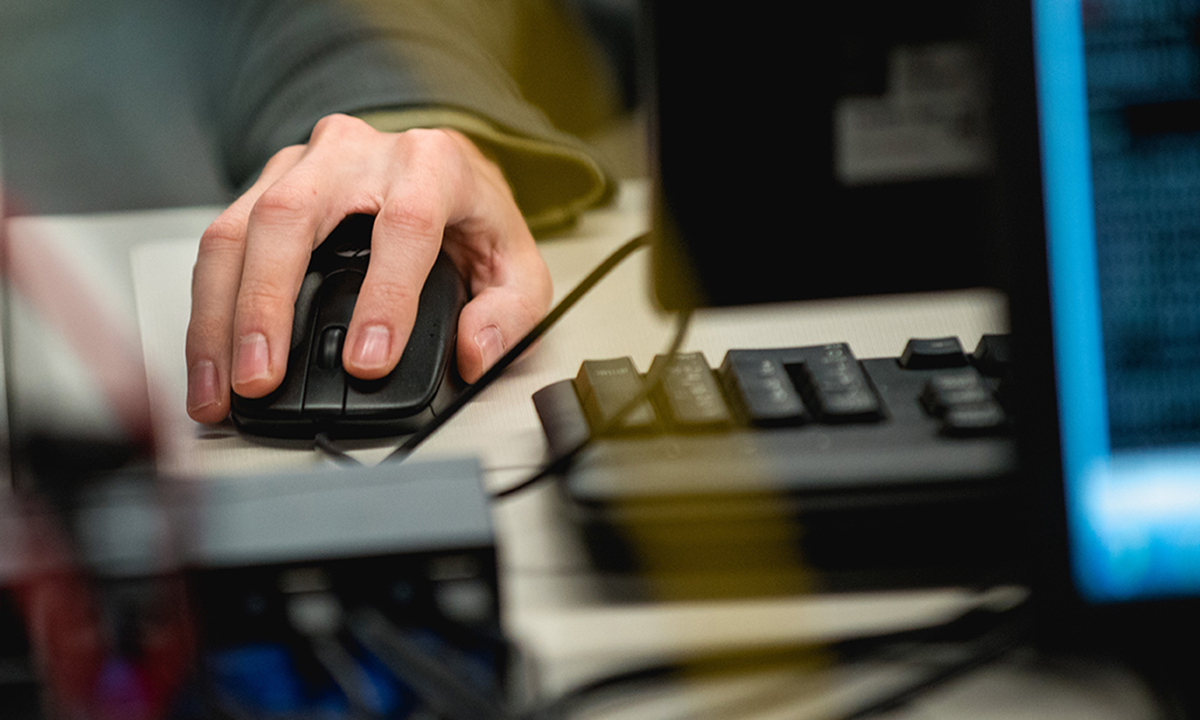Nurturing Connections
Dr. Jia Li works in a unique partnership with the United States Air Force
Oakland University research creates connections, offering opportunities for faculty to expand their scholarly endeavors and to involve students in purposeful scientific explorations. Jia Li, Ph.D., professor of electrical and computer engineering, knows the value of nurturing these networks, as she works in a unique partnership with the United States Air Force.
Dr. Li is awarded a three-year grant from the Air Force Office of Scientific Research to investigate dynamic data-driven multi-static electro-optical (EO) and radio frequency (RF) sensor fusion. “Fusion of heterogeneous data collected by distributed sensors is a challenging problem,” Dr. Li explains. “While both EO and RF sensors are commonly used by military operations to establish situational awareness, they work under completely different mechanisms.”
Dr. Li explores the problems of automatic target detection by investigating statistical learning algorithms and neural networks for the data fusion of distributed EO/RF sensors to improve the precision of detection and tracking.
The grant also allows OU students to participate in unique research opportunities in the defense industry. Currently, Dr. Li’s group includes graduate students Asad Vaki, Jack Andrews, Bing Liu and Huaizheng My. Asad Vaki is expected to work in the Air Force Research Lab (AFRL) at Wright Patterson Air Force Base as part of the AFRL summer intern program.
“We are developing fusion of EO/RF neural network (FERNN) based on deep learning, which can lead to accurate target detection, recognition and tracking,” Dr. Li says. One of the recent outcomes of this collaboration is a paper on FERNN, co-authored by Dr. Li’s group and Air Force researchers, published in The Institute of Electrical and Electronics Engineers (IEEE) Aerospace Conference in March 2020.
“The collaboration is valuable to both the U.S. Air Force and academia in terms of data collection, algorithm development and performance evaluation,” Dr. Li says. “The support from the Air Force has been enormous so far.”
Prior to partnering with the U.S. Air Force, Dr. Li worked with General Motors and Fiat Chrysler Automobiles, where she developed intra-vehicle wireless sensor networks and sensor fusion-based indoor localization and tracking techniques. Dr. Li’s current research will provide a new platform to extend the collaboration with the automotive industry as sensor fusion techniques are critical functions in autonomous driving.

 May 07, 2020
May 07, 2020
 By Rubi Rodriquez and Arina Bokas
By Rubi Rodriquez and Arina Bokas



